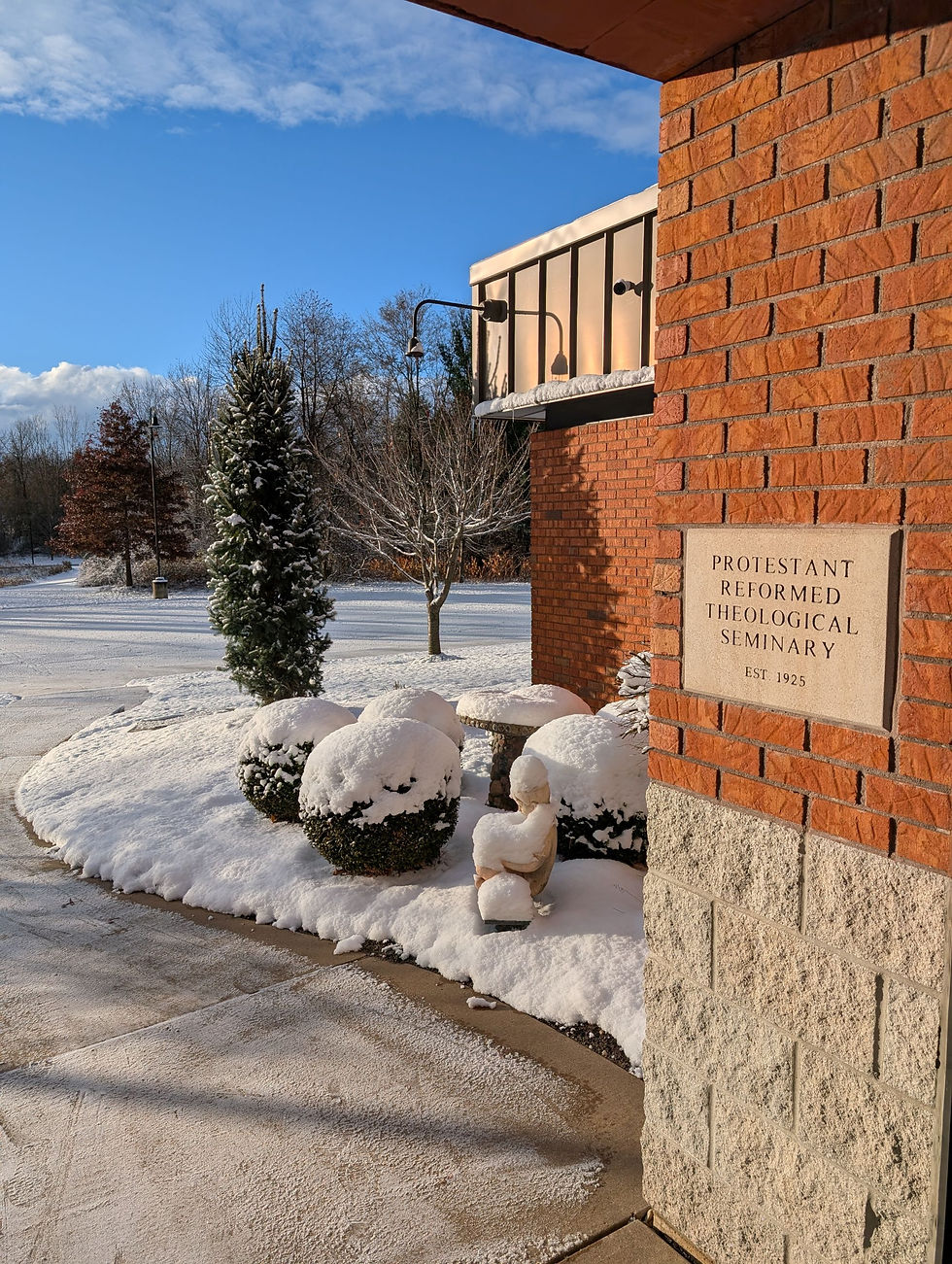G. Ophoff and the Covenant Controversy in the PRC
- prcseminary1925
- Jan 16, 2020
- 3 min read

In the Fall 2019 issue of the PRT Journal is a section out of Prof. D. Kuiper's recently published thesis on Rev. George M. Ophoff, former minister of the Word and seminary professor in the Protestant Reformed Churches (PRC). Rev. Ophoff was a key factor in the covenant controversy that took place in the early 1950s in the PRC.
In his thesis on Ophoff, titled Recognizing the Legacy of George M. Ophoff, Prof. Kuiper includes a chapter treating Ophoff's significant role in defending the truths of sovereign grace in connection with the doctrine of the covenant at a critical point in PRC history.
Here is the beginning of Kuiper's account of the nature of the controversy and Ophoff's involvement:
The issue in this controversy was whether faith is a condition that humans must fulfill to be in God’s covenant and fully enjoy its benefits. More particularly, the issue was whether God promised salvation objectively to every baptized child, but required that child to believe in order to receive the salvation He had promised. In the end, the PRC decisively rejected the idea of conditions in the covenant.
The issue ought not be misconstrued. First, the PRC did not deny the role of faith in salvation. They understood faith to be the means or instrument by which all the blessings of salvation become ours. They considered faith to be God’s gift to His people, and therefore an integral component of salvation itself. They understood faith’s activity to be a fruit of God’s grace, the inevitable response of God’s covenant people to His work of establishing and maintaining His covenant. The PRC did not come to understand these points only as a result of the conditional covenant controversy; rather, they had always understood Scripture and the Reformed confessions to teach this.
Second, the PRC did not dispute that orthodox Reformed theologians in years past had used the word “condition” when referring to faith and obedience.10 The PRC understood these men not to have taught that God promises to bring humans into the covenant, or to continue covenant fellowship with them, only if humans do something first. Rather, the PRC understood these fathers to have taught that faith is a necessary way by which God’s covenant members inevitably experience His covenant blessings.
Such was Ophoff’s own assessment. In an article entitled “The Fathers Regarding Conditions,” Ophoff responded to the assertion of another that the Reformed fathers spoke of conditions in the covenant. Ophoff said that this assertion “is too sweeping to be true” and pointed out Herman Bavinck’s own assessment of this view decades earlier: “In the first period the Reformed freely spoke of conditions in the covenant. But when the nature of the covenant was more deeply thought into and had to be defended against Roman Catholics, Lutherans, and Remonstrants, many in their hearts objected to the usage of that language and avoided it.” Ophoff then stated positively the key to understanding that in the covenant God requires faith and obedience: “The right way of saying this is to state simply that, with God working regeneration, faith, and conversion in His people, there are no conditions in the covenant; and that, this being true, the promises of God are unconditional and unfailing.
To continue reading about this important controversy and Ophoff's role in it, visit the Journal page and find Prof. Kuiper's article "Ophoff’s Role in the Conditional Covenant Controversy."




Comments